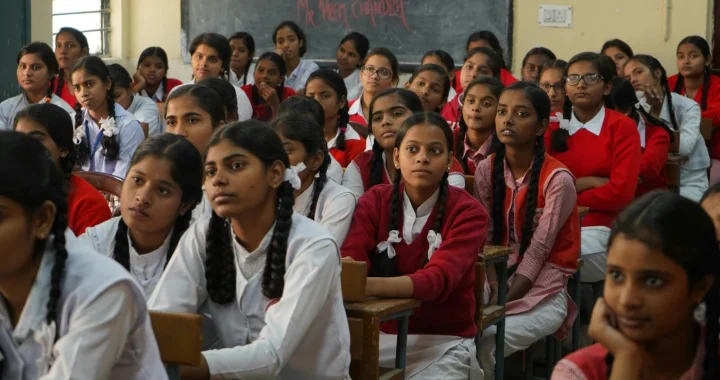Access to Quality Books to Improve Quality Education

Photo: Suad Kamardeen on Unsplash.
Books have immense power in shaping who we are. We can see glimpses of the world, discover new things, understand other people’s thoughts, and learn so much in the pages. Therefore, having access to quality books since childhood is crucial for humans’ emotional, intellectual, and physical growth. Unfortunately, millions of children still have minimal access to quality books.
Early literacy development
Our desire to communicate begins at a very early stage of life. Babies start to make gibberish sounds as an attempt to communicate before gradually learning to form coherent sentences as they age. In this stage, parents-children interactions are crucial to stimulate children’s language development. One of the ways is through shared book-reading experiences, where parents read to their children.
Books hold a special place in children’s early literacy development. A study found that getting exposed to books provides opportunities for children to discover new words, topics, and concepts that are rarely used in everyday speech. As the language used in books often has a broader and deeper range than spoken language, it can also promote children’s social and emotional development.
Another research found that children who read daily between the age of 10-11 show better performance in school in the following years. The research also noted that it’s not only a matter of how often they read but also what kind of text they read. Access to quality books becomes necessary to truly improve children’s early literacy development.
Learning poverty
A 2022 global report shares that around 70% of 10-year-olds in low and middle-income countries need help understanding a simple written text. This learning poverty results from prolonged school closure due to COVID-19 and poor foundational literacy skills among underprivileged communities.
Children from impoverished households have limited access to quality books. Usually, this condition is also reflected within the communities where low-income communities have less access to quality books in their schools and public libraries. As a result, these children are deprived of the opportunities to learn and understand languages compared to their more financially stable peers.
Access to quality books
Supporting quality education worldwide requires increasing access to quality books. Therefore, a large-scale intervention is critical to bridge the literacy gap, especially in low-income countries. The World Bank has stated its commitment to redouble the efforts to provide more quality books to readers in several ways:
- Promoting the development of local educational publishing industries.
- Strengthening the procurement of books through greater accountability and harnessing new technologies and partnerships.
- Supporting governments in developing clear criteria for approval and procurement of reading content so that materials are affordable, appropriate, durable, contextually relevant, and open-source.
- Working with other partners through existing organizations to develop high-quality, open-source, global public goods such as leveled readers in multiple languages and for different cultural contexts.
Still, achieving quality education for all remains our collective work. Therefore, organizations, governments, researchers, communities and other stakeholders are invited to collaborate in increasing access to quality books for all children.
Editor: Nazalea Kusuma

Co-create positive impact for people and the planet.
Amidst today’s increasingly complex global challenges, equipping yourself, team, and communities with interdisciplinary and cross-sectoral insights on sustainability-related issues and sustainable development is no longer optional — it is a strategic necessity to stay ahead and stay relevant.

Kresentia Madina
Madina is the Assistant Manager of Stakeholder Engagement at Green Network Asia. She holds a bachelor’s degree in English Studies from Universitas Indonesia. As part of the GNA In-House Team, she supports the organization's multi-stakeholder engagement across international organizations, governments, businesses, civil society, and grassroots communities through digital publications, events, capacity building, and research.


 India’s Supreme Court Declared Menstrual Health and Hygiene as Fundamental Rights
India’s Supreme Court Declared Menstrual Health and Hygiene as Fundamental Rights  Impacts of E-waste Pollution on Animals and Human Health
Impacts of E-waste Pollution on Animals and Human Health  Africa’s Solar Energy Surge: Why 2025 Was a Breakthrough Year
Africa’s Solar Energy Surge: Why 2025 Was a Breakthrough Year  Agrihoods: Integrating Farms and Urban Neighborhoods into Sustainable Communities
Agrihoods: Integrating Farms and Urban Neighborhoods into Sustainable Communities  Women in Waste Management: Asia’s Circularity Runs on Women. Its Policies Still Don’t
Women in Waste Management: Asia’s Circularity Runs on Women. Its Policies Still Don’t  Embracing the Business Value of Sustainability
Embracing the Business Value of Sustainability